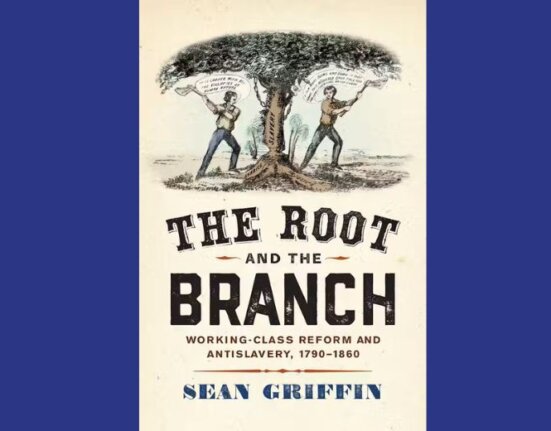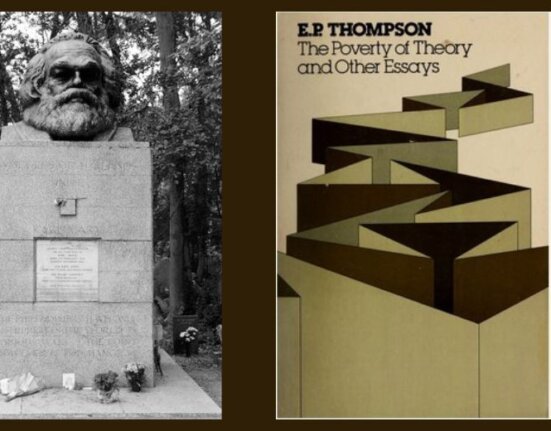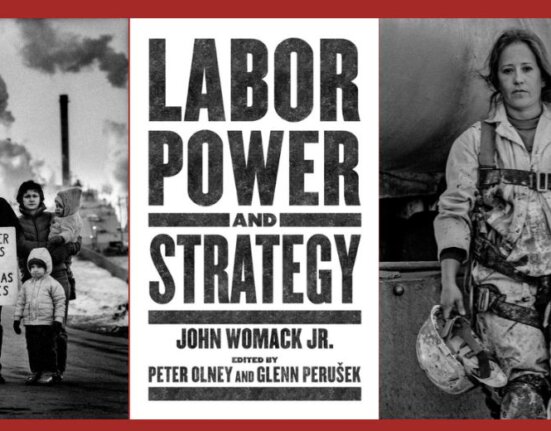In case natural disaster, nuclear war, and unpredictable political leaders are not enough to keep us up at night, we remain under threat by an age-old specter: the menace of the “union boss.” Just this week a Newsmax headline screamed “Union Boss: Too Early for 2018 Targets,” while the Washington Times blared “Union boss Richard Trumka focused on retaking Trump’s Rust Belt states next year.”
“Union boss.” Really?
The term carries the whiff of corruption and illegitimate power. Last time I checked, workers form a union to challenge the unbridled authority of their actual boss, and they elect leaders to represent them in negotiations with that same boss.
“Union boss,” in other words, is an oxymoron. But unlike counterparts such as “jumbo shrimp,” “act naturally,” and “the only choice,” it’s less whimsical than nefarious. “Union boss” conjures a parasite on the body economic, a meddler in the supposedly harmonious relationship between worker and employer.
As we reflect on the state of work and workers this Labor Day weekend (at least those fortunate to have a day off!), let’s take a few minutes to ponder the language of labor in our public sphere and vow to fight back against foolish phrases that undermine our ability to think critically about economic fairness and worker justice.
We’re a long way from the heyday of American unions in the 1950s and 1960s, when labor leaders like Walter Reuther, George Meany, and Jerry Wurf represented millions of members, bargained contracts that established benchmarks for the entire labor market, and wielded considerable influence with policymakers. Even then, though, “union boss” was a misnomer, since (with very few exceptions in the building trades) the power to hire, fire, promote, and discipline has always rested with employers (limited, but not overturned, by a union contract). Characterizing a labor leader as a “union boss,” then, both inverts the reality of power and obscures it.
Now more than ever American workers need advocates to help them boost flat paychecks, tackle student debt, and resist being overworked at the expense of family and leisure time. But despite a recent Gallup poll showing that a majority of Americans favor unions (especially younger Americans), organized labor continues to suffer from the slings and arrows of employers and policymakers. And despite the fact that unions represent fewer than seven percent of private sector workers, “union bosses” dominate the media’s coverage of organized labor.
The “union boss” is omnipresent , including in ostensibly labor-friendly outlets like the New York Times (who recently deployed it to describe both United Steelworkers Local 1999 president (and Trump resistor) Chuck Jones and Actors’ Equity president Kate Shindle). “Union boss,” in other words, is now used as shorthand or synonym for labor leader or union president, insidiously stigmatizing the very people fighting for the rights, protections, and opportunities of working people.
Next time you see the term “union boss” in your news organ of choice, write them to complain and encourage the adoption of more accurate terms like “union president,” “union leader,” and “worker advocate.”
The new boss is the same as the old one (to paraphrase The Who), so let’s fire the term “union boss,” and not get fooled (again) by words that warp meaning and terms that turn reality upside down.
Happy Labor Day!
Originally published September 1, 2017 at The Labor Question Today. Republished with permission from the author.







